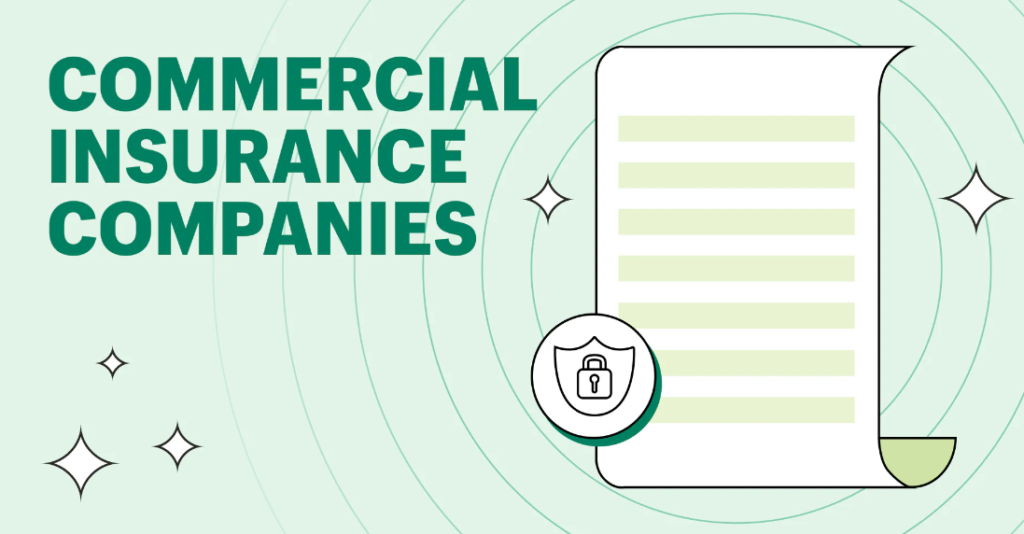Introduction
What would happen if your business faced a significant setback tomorrow? Imagine a fire, a lawsuit, or even a cyber-attack. Without the proper safety net, the financial implications could be catastrophic. This is where commercial insurance comes in.
What is Commercial Insurance?
Commercial insurance is a broad term that encompasses various types of coverage designed to protect businesses from potential losses. Whether you run a small local shop or a large corporation, commercial insurance is vital to safeguard your assets, employees, and operations.
Importance of Commercial Insurance
Why is commercial insurance crucial? It offers peace of mind, financial security, and legal protection. It’s not just about being prepared for the worst-case scenario; it’s about ensuring your business can survive and thrive even when the unexpected happens.
Types of Commercial Insurance
Commercial insurance isn’t a one-size-fits-all solution. Here are some of the most common types:
General Liability Insurance
This covers your business against claims of bodily injury, property damage, and personal injury.
Property Insurance
This protects your business property, including buildings and contents, against risks like fire, theft, and natural disasters.
Workers’ Compensation Insurance
Essential for businesses with employees, this covers medical expenses and lost wages if an employee is injured at work.
Business Interruption Insurance
This helps cover lost income and operating expenses if your business is temporarily shut down due to a covered event.
Professional Liability Insurance
Also known as Errors and Omissions (E&O) insurance, this covers claims of negligence or mistakes in professional services.
Commercial Auto Insurance
If your business uses vehicles, this covers damages and liability arising from accidents.
Cyber Liability Insurance
In an age of digital dependency, this covers the costs associated with data breaches and cyber-attacks.
Product Liability Insurance
This protects against claims of injury or damage caused by products your business manufactures or sells.
Directors and Officers Insurance
This covers the personal liability of company directors and officers for decisions made on behalf of the company.
Benefits of Commercial Insurance
Financial Protection
The primary benefit is financial protection. It can save your business from crippling expenses in the event of a claim.
Risk Management
It aids in managing risks effectively, ensuring your business is prepared for various scenarios.
Legal Compliance
Certain types of insurance are legally required, depending on your location and industry. Compliance is not just about avoiding fines but also about running a responsible business.
How to Choose the Right Commercial Insurance
Assessing Business Needs
Start by evaluating the specific risks your business faces. This includes the type of work you do, the size of your business, and your location.
Understanding Policy Coverage
Read the fine print. Understand what is covered, what isn’t, and the limits of the policy.
Comparing Insurance Providers
Shop around. Different providers offer different terms, coverage options, and pricing.
Consulting with an Insurance Broker
A broker can offer expert advice, helping you find the best coverage at the best price.
Common Myths about Commercial Insurance
Small Businesses Don’t Need Insurance
Every business, regardless of size, faces risks that could be mitigated by insurance.
Home-Based Businesses Are Covered by Home Insurance
Typically, home insurance does not cover business-related risks.
Commercial Insurance is Too Expensive
While it can be costly, the potential costs of not having insurance are far greater.
All Policies are the Same
Policies vary significantly in terms of coverage, exclusions, and costs.
Factors Affecting Commercial Insurance Costs
Business Type and Industry
Certain industries face higher risks and thus higher premiums.
Business Size and Revenue
Larger businesses or those with higher revenue may pay more for insurance.
Location
Geographic location can affect premiums due to varying risks (e.g., natural disasters).
Claims History
A history of frequent claims can lead to higher premiums.
Steps to Filing a Commercial Insurance Claim
Immediate Actions Post-Incident
Ensure safety and mitigate further damage immediately after an incident.
Documentation and Evidence Collection
Gather all necessary documents and evidence to support your claim.
Contacting the Insurance Provider
Notify your insurer as soon as possible.
Working with an Adjuster
Cooperate with the insurance adjuster to assess the damage and process the claim.
The Role of an Insurance Broker
Finding the Best Policies
Brokers have access to multiple insurance providers and can find the best policies for your needs.
Negotiating Coverage Terms
They can help negotiate better terms and coverage options.
Ongoing Policy Management
Brokers provide ongoing support, including policy reviews and updates as your business grows.
Real-Life Examples of Commercial Insurance in Action
Case Study 1: Natural Disaster Recovery
A small business was able to rebuild after a devastating flood, thanks to their comprehensive property and business interruption insurance.
Case Study 2: Cyber Attack Response
A tech company faced a significant data breach. Cyber liability insurance covered the costs of notification, recovery, and legal fees.
Case Study 3: Workplace Injury Compensation
An employee injury led to a substantial workers’ compensation claim. The business avoided financial strain due to proper coverage.
Conclusion
Commercial insurance is an essential tool for safeguarding your business against unforeseen risks. From financial protection to legal compliance, the right insurance policies can ensure your business remains resilient and successful. Don’t wait for a disaster to strike; secure your business’s future today with comprehensive commercial insurance.
FAQs
What is the difference between general liability and professional liability insurance?
General liability covers bodily injury and property damage, while professional liability covers negligence and errors in professional services.
Is commercial insurance mandatory for all businesses?
It depends on your location and industry. Some types of commercial insurance are legally required.
How can I lower my commercial insurance premiums?
You can lower premiums by increasing deductibles, improving risk management practices, and shopping around for the best rates.
Can I bundle different types of commercial insurance?
Yes, bundling multiple policies with the same provider can often lead to discounts.
What happens if I don’t have commercial insurance?
Without insurance, your business could face significant financial losses from claims, legal penalties, and operational interruptions.


